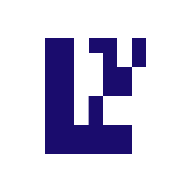The development teams behind Ethereum's EigenLayer remining protocol and LayerZero messaging protocol have announced a new system designed to improve the security of cross-chain communications.

In a blog published on October 2, LayerZero Labs announced its collaboration with Eigen Labs and unveiled the structure of a "crypto-economic decentralized verification network" (DVN).
This system combines technical verification with financial incentives to ensure secure messaging between chains.
DVN addresses several problems associated with cross-chain security, such as lack of economic incentives for trust, limited security participation, and inflexible security models.
DVN uses crypto-economic security, where verifiers rely on assets that can be selected or "cut" in the event of fraudulent behavior or errors.
The system has four main mechanisms for securing interchain communications.
Verifiers pledge tokens such as EIGEN or native ZRO protocol assets. The messages are transmitted through the #blockchain and verified. If a discrepancy is detected, the #token owner can vote to veto the pledged asset. Finally, if malicious behavior is detected, the pledged assets are seized or destroyed.
The benefits of this system include increased security for cross-chain messaging, financial incentives for honest behavior, the inclusion of any network that contributes by pledging assets, and the flexibility of different verification methods, the blog post said.
The framework is open source, allowing other teams to run their own DVNs using betting assets of their choice. This allows you to build application-specific DVNs with customizable security parameters.
In its blog, Eigen Labs explains that omnichannel verification security used to depend solely on network verification mechanisms. But now, with Eigenlayer's re-keying primitives, anyone can re-key assets to provide an additional layer of security, the company added.
The total value of the EigenLayer blockchain is currently $ 10.
Read us at: Compass Investments

